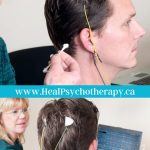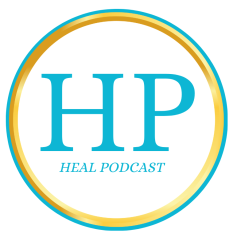Trauma-Focused Neurofeedback - Sign up for Info!

Coming January, 2024!
Sign up below To Be Notified When NF is Available & to Book Your Free Consultation!
Trauma-focused neurofeedback is a cutting-edge therapeutic approach that supports neuroplasticity in real-time!
Here are some compelling reasons why trauma-focused neurofeedback is worth considering:
-
Targeted Healing for Trauma: Trauma-focused neurofeedback is specifically designed to address the effects of trauma on the brain and nervous system. Traumatic experiences can lead to dysregulation in neural pathways, causing symptoms like anxiety, depression, PTSD, and difficulty coping with stress. Neurofeedback aims to restore balance and functioning to these areas.
-
Non-Invasive and Drug-Free: Unlike some traditional treatments, trauma-focused neurofeedback is non-invasive and does not involve medication. It utilizes advanced technology to monitor brainwave activity and provide real-time feedback, helping the brain to reorganize itself from the trauma’s neuronal impacts.
-
Individualized Treatment: Every person’s brain is unique, and trauma affects individuals differently. Trauma-focused neurofeedback is personalized to each individual’s brainwave patterns, allowing for tailored treatment plans that cater to specific needs and responses.
-
Efficient and Lasting Results: Neurofeedback has been shown to offer rapid and enduring results for trauma survivors. Clients often report reduced symptoms, improved emotional regulation, better sleep, and enhanced overall well-being.
-
Complements Other Therapies: Trauma-focused neurofeedback can be used as a standalone treatment or as a complementary approach alongside other therapies, such as psychotherapy or counselling. It enhances the effectiveness of other treatments by supporting the brain’s capacity for healing.
-
Neuroplasticity and Brain Healing: The brain’s remarkable ability to reorganize and form new neural connections is called neuroplasticity. Trauma-focused neurofeedback harnesses this process to promote brain healing and resilience after trauma.
-
Empowerment and Self-Regulation: Neurofeedback empowers individuals by teaching them self-regulation skills. Clients can experience a renewed sense of control over their emotional and physiological responses, leading to increased self-confidence. They can experience life outside of “surviving.”
-
Safe for All Ages: Trauma-focused neurofeedback is safe and suitable for individuals of all ages, from children to older adults. It can be particularly valuable for children who have experienced trauma, as it may help prevent the development of long-term emotional and behavioural difficulties.
-
Reduced Risk of Relapse: Neurofeedback addresses the underlying neural imbalances associated with trauma, reducing the risk of relapse and promoting sustained recovery.
-
Scientific Support: Trauma-focused neurofeedback is backed by an increasing body of scientific research supporting its effectiveness for trauma treatment. As the field of neuroscience advances, so does our understanding of how neurofeedback can be harnessed to facilitate healing.
It’s important to note that trauma-focused neurofeedback should be administered by qualified and experienced professionals, such as licensed therapists or clinicians trained in neurofeedback techniques. If you or someone you know is struggling with trauma-related symptoms, consider connecting with Lucie Ritchie to explore trauma-focused neurofeedback as a potential path to healing and recovery.


